Last week, Her Majesty’s Chief Inspector of Schools used the publication of her annual report to take aim at schools which “narrow education”.
In her speech, she gave an example of a school which required all pupils “to take a sports science qualification, using up a valuable GCSE slot, whether or not they had any interest in sports science at all”.
This segued into a warning not to “succumb to the seductive but wrong-headed logic that we help disadvantaged children by turning a blind eye to schools that narrow education in this way”.
In this blogpost I’ll look at the extent to which schools enter all or a large majority of pupils for a particular qualification, and in a sister post I’ll look at which qualifications disadvantaged pupils are taking. These blogposts are based on 2018 Key Stage 4 data. If we get chance, we will provide an update when 2019 school performance tables are published.[1]
Schools which enter the majority of pupils for a qualification
The vast majority of schools enter almost all pupils into English, maths and science. Around 900, half of which were faith schools, entered the majority of pupils for GCSE religious studies.
But what about other subjects. How common are the sorts of examples referenced by Her Majesty’s Chief Inspector?
The chart below shows how many schools entered at least 75% in a certain subject. Left out are selective schools, studio schools and university technical colleges.
Around 500 schools – roughly one in six – entered at least 75% of their pupils in at least one particular subject in 2018.
Most commonly, this was in applied ICT. A total of 70 schools entered the majority of its pupils in a non-GCSE qualification in applied ICT. In previous years, this would have included the European Computer Driving Licence (ECDL) qualification and would have been a much longer bar.
Just over 50 schools entered the majority of its pupils in a non-GCSE qualification in sports science, like the one referenced by HMCI. In previous work, we considered this to be one of the most generously scored qualifications. However, a similar number entered the majority of pupils in a non-GCSE qualification in personal finance[2], which was one of the least generously scored.
Some schools entered the majority of pupils for GCSEs in certain subjects. This includes some of the EBacc subjects (history, geography, French, Spanish). I wonder if eyebrows would be raised within the inspectorate about this? But other subjects perhaps require less timetable time: statistics, general studies and English for speakers of other languages (ESOL).
Impact on Progress 8
Of the 500 schools which entered the majority of their pupils for a single subject, 200 did so in a non-GCSE qualification and 370 did so in a GCSE (there is some overlap between the two groups).
As the chart below shows, the 370 GCSE schools achieved a slightly above average Progress 8 score overall and in each of its component ‘slots’.
The picture for the 200 non-GCSE schools is different. They achieved an overall Progress 8 score of 0, bang on the national average.
However, this overall average hides variation between the slots. Progress 8 scores for the English, maths, and especially the EBacc, slots are below average. However, the score for the open slots at 0.31 is well above average. It is equivalent to almost a third of a grade per subject.
This won’t be due to mass entry in non-GCSE subjects alone, but the two are certainly related.
Summary
So what have we learnt from this?
Leaving aside English, maths, science and religious studies, it’s not unusual for schools to enter a majority of its pupils in a single subject. We may well see more inspection reports commenting on this in future.
What it also suggests, as we’ve argued before, is that some non-GCSE qualifications are scored too generously. If they weren’t, perhaps there would be less incentive for schools to pursue mass entry policies.
Now read the second of this pair of posts on narrowing of the curriculum.
Want to stay up-to-date with the latest research from FFT Education Datalab? Sign up to Datalab’s mailing list to get notifications about new blogposts, or to receive the team’s half-termly newsletter.
1. Not all GCSEs had been reformed by 2018, while some other subjects such as ICT and general studies have now ceased to be available.


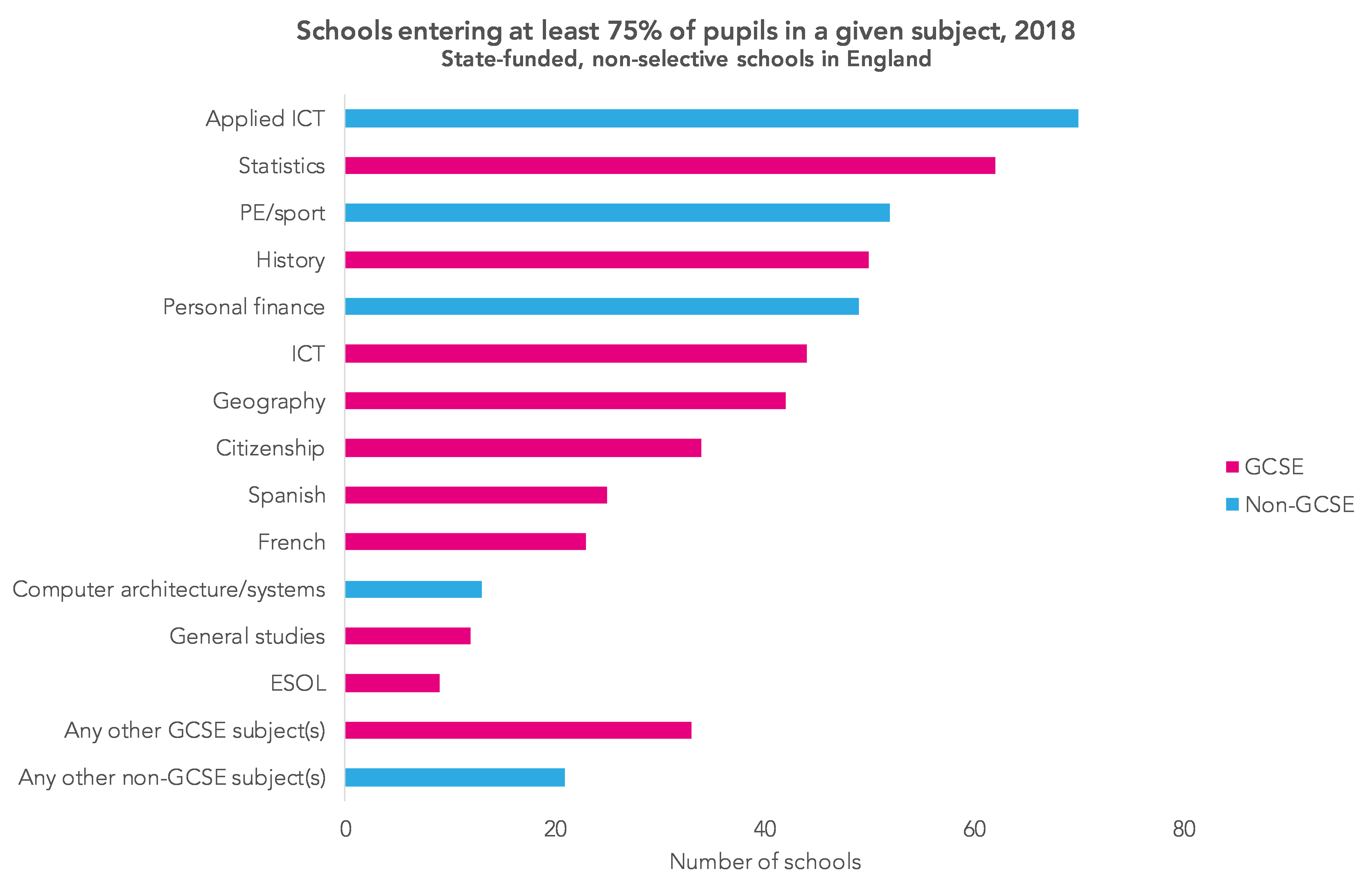
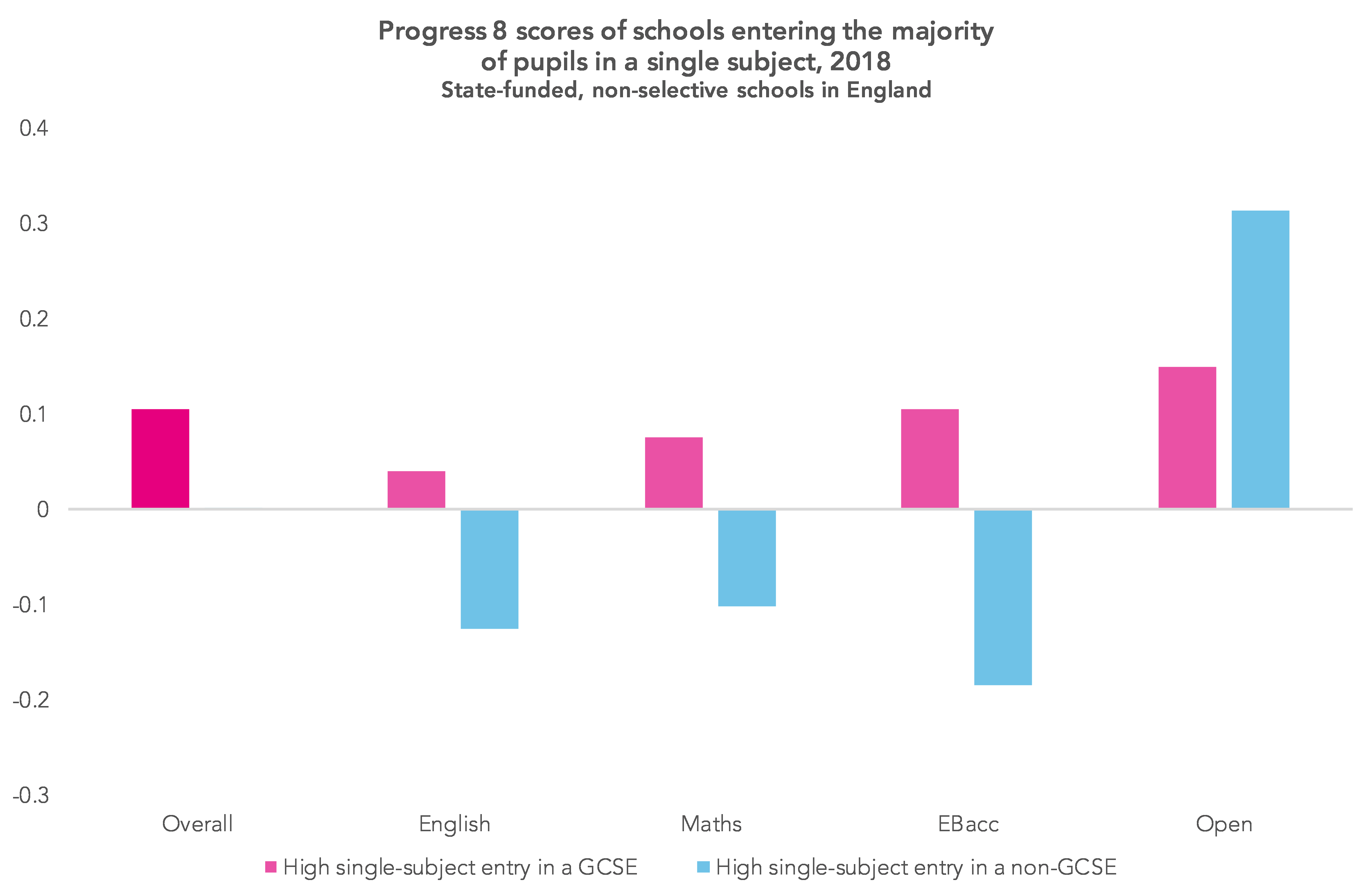
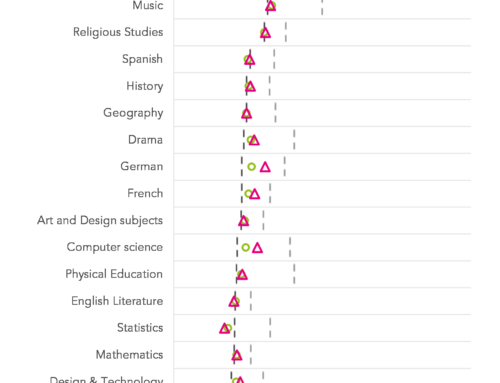
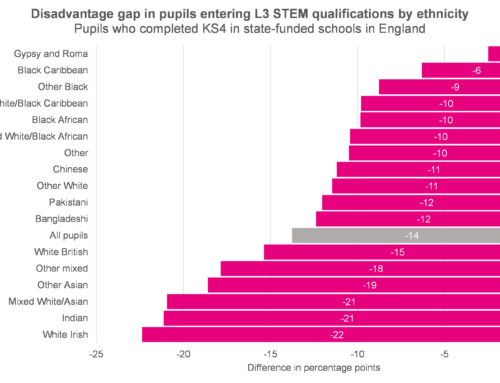
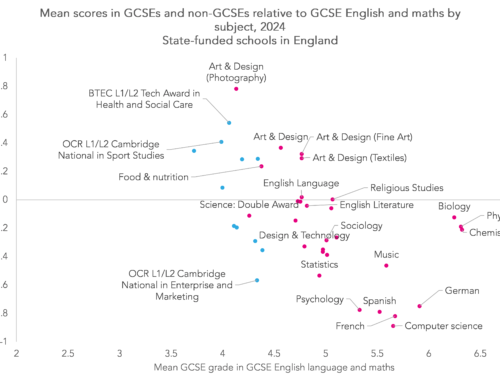
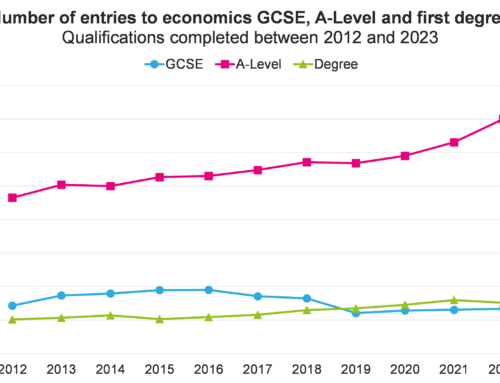

Leave A Comment